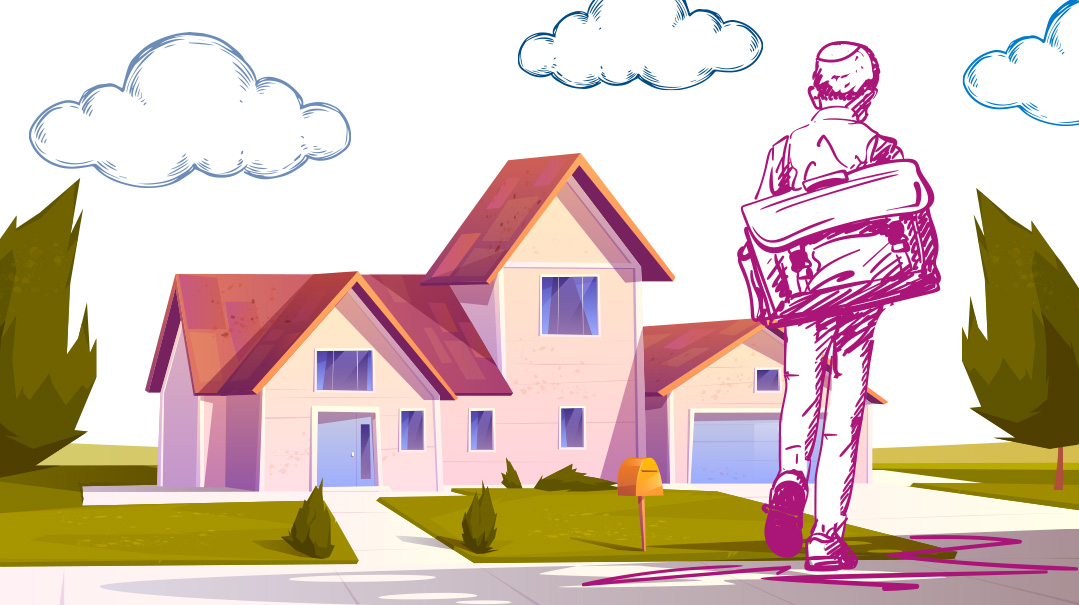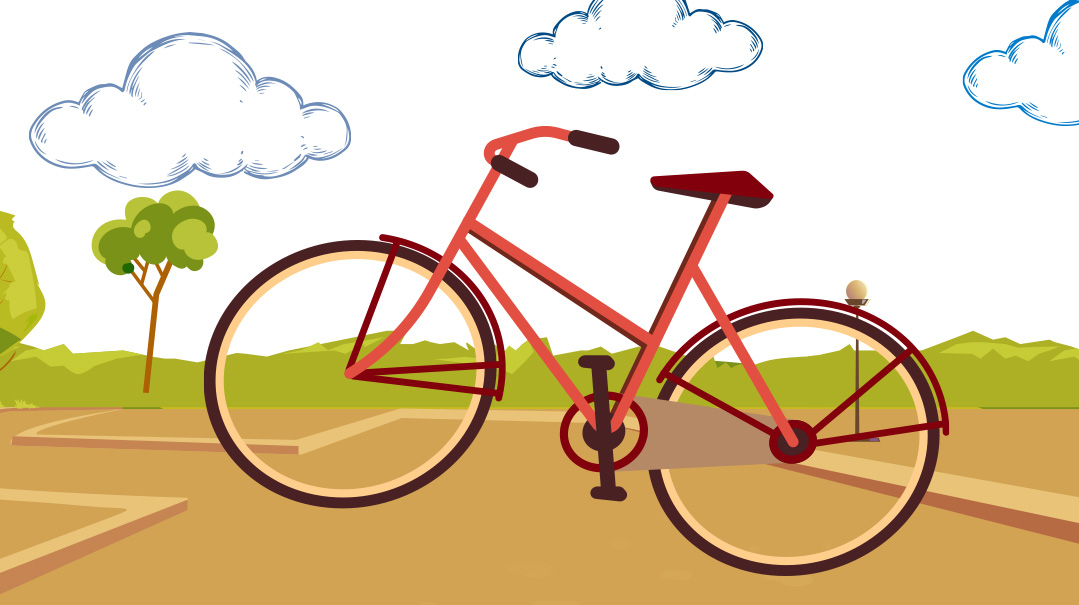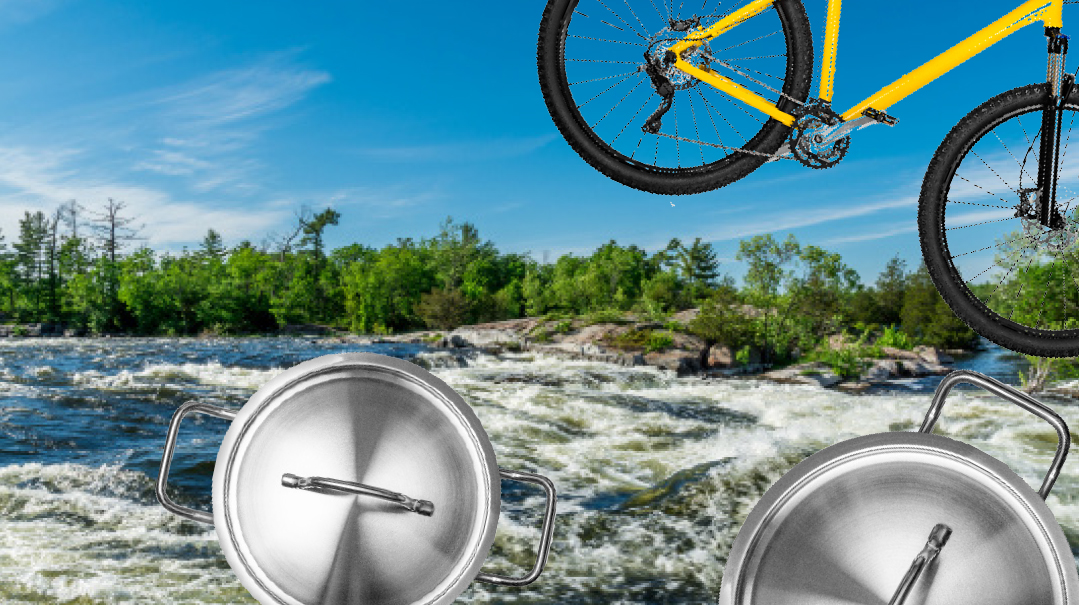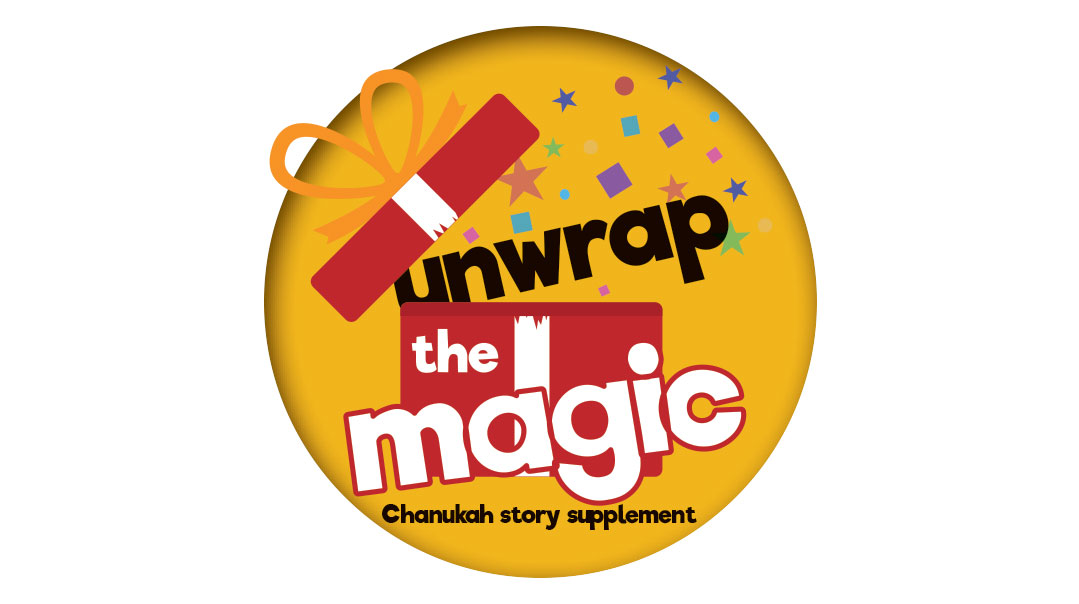The Mitzri and I
| April 3, 2023It’s a great Haggadah, I realize. Just not the best one for me
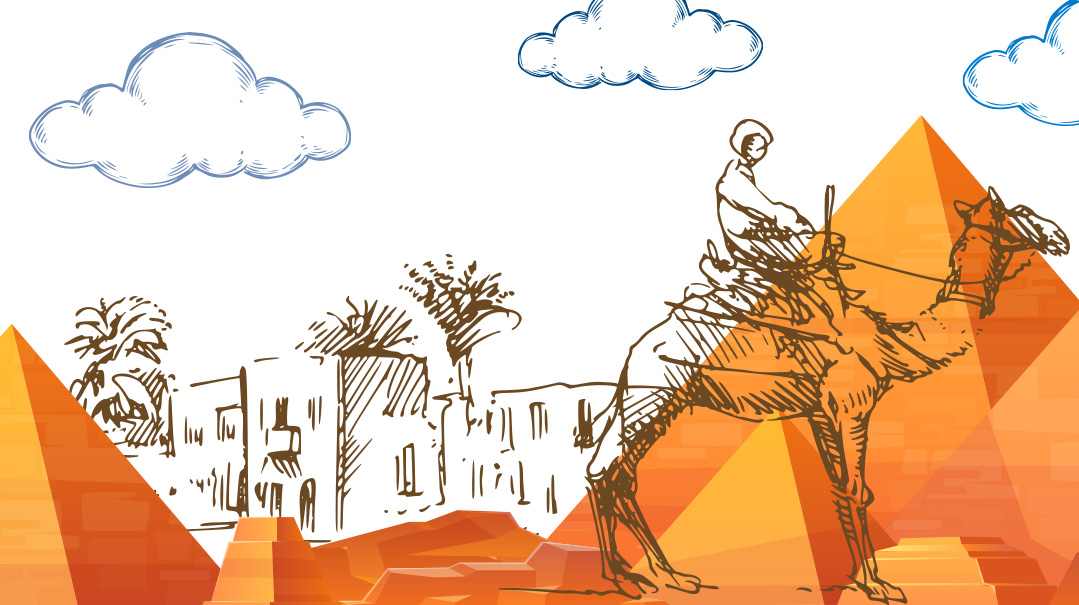
It is hot. So, so hot.
I will myself to focus, not to tear my eyes away from the face before me. The man, haunting agony in his eyes. Wounds on his face, staining his beard, his robes. The broken desperation in his posture, his expression… his voice.
“They took my child,” he says, then he lifts his voice to a primal shriek, a Heaven-splitting cry. “My son! My baby! They took him because I could not fill the quota of bricks that those barbaric taskmasters have set on us. They have taken our straw, made us gather it for ourselves in the heat, in the burning sun, and yet they expect us to produce the same number of bricks that we have done up until now.”
There is no mercy, no reprieve; not from the sun baking down on us in the desert sands; not from the voice of the man or the wailing of — now I see them — tens of other slaves in ripped clothing, bruised and beaten; not from the deeper, rougher shouts of the taskmasters, brandishing leather whips….
I can’t bear it. My head is spinning; I feel thirsty, faint. Dying.
“Yisrael? Yisrael!” My name. Voices. I know them, it’s my brothers and sisters, my mother… but I’m still staring at that horrific face, the unknown man… but it’s receding, the desert around us disappearing, and suddenly, the man is staring out of the pages of the Haggadah in front of me, and I’m sitting at the Seder table, in 2023, with my family — all four siblings, two siblings-in-law, and my niece and nephew — staring at me with laughter on their faces.
“Hey, you’re like six pages behind us,” Chezky says, flipping the pages of my Haggadah forward, forward, past more nightmarish images and onto a page that depicts the splitting of the sea.
“You were sleeping. I guess you were really tired!” My sister Bracha tells me, as I blink across at her, disoriented.
“I… what?” I shake my head. I wasn’t sleeping, I was there, in Mitzrayim, feeling the pain, the terror, the burning heat….
It’s hot in the room, but somehow I’m shivering. Abba starts singing Dayeinu, my brothers join in, Chayala and Yitzi clap along, but I’m not there with him, I’m still lagging behind, lost in the torment of the Egyptian quicksand under a glaring, merciless sun.
The pictures follow me through the Seder.
I hear piteous cries of babies, the agonized screams of women whose newborn sons are tossed into the waters of the Nile. I mumble the words along with my father, drink the second kos, crunch on matzah, and all the while I’m seeing it, feeling the heartbreak, hearing the cries….
Ima brings out steaming bowls of soup, and then the main course. Everything is delicious, but somehow it tastes bitter on my tongue. It’s hard to enjoy the soft chicken, the delicious kugel, when the horrors of Mitzrayim are lingering in my mind’s eye.
My niece and nephew steal the afikomen and demand roller blades in return for giving it back. My siblings banter, enjoying the rare occasion that our entire family is together. But I… I feel like I’m in a fog, removed from everything, trapped between two worlds.
“Yisrael, want to share something you learned in school?” Abba invites. I have a notebook stuffed with divrei Torah on the Haggadah, and I flick through it eagerly, looking for something my family will enjoy. For a few minutes, the images in my head recede.
But late that night, when the Seder is over and the house settles down to sleep, they return. Lying in bed, the pages haunt me, and I fall asleep with a picture of the beaten man crying out for help before my eyes.
“Harder! Work harder! More!” It is a collective shout, the voices of many taskmasters. A whip slices through the air. It lashes the man beside me, not my own aching back, but I scream anyway.
Around me, men are groaning, crying out, or maybe it is the world itself groaning under the weight of bricks too heavy to bear, for they are sinking, sinking… and even as we struggle mightily to build structures, yesterday’s efforts are slowly receding into the ground.
Sun baking above, need water, no strength. My arms are failing me. But I must work harder, I must.
The sun is setting around me, despite me. Wait, wait, just another brick, another — mix — build — drag — one — more—
“You have not filled your quota!”
I see themhim looming over me, whip in hands, and I raise my own hands to cover my face –
Screaming, so much screaming.
I wake up and it is nighttime. I’m twisted inside my blanket, sweating, disoriented, and screaming.
Why am I screaming?
The nightmare hurtles into consciousness. Because I was there, I was in Mitzrayim, it was happening to me….
“Yisrael! Yisrael, are you okay?”
My father taps on the bedroom door. I’ve woken him up — woken everyone, probably. I’m so embarrassed.
The door opens and dim light from the hallway filters in. My dream seems so… silly, laughable, in the light.
“Yeah — I’m, I’m fine,” I say. My voice is jerky. Why is my heart beating so strongly, so fast? “I guess I just had a bad dream.”
Abba pats my shoulder. “That’s okay, it’s probably the late night… don’t forget, it’s Leil Shimurim tonight. The night of guarding. Hashem is protecting us….”
“Yes,” I say. But I don’t tell him that the monsters I’m afraid of… they’re inside my mind.
Abba lingers by the door. “Good night, tzaddik’l, sleep well.”
I want to wish him good night, too, but my throat is closing up and his shadow is passing through the doorway, and to my horror, as my father gently closes the door behind him, I see an Egyptian with a whip menacing, looming closer.
“Abba!” I squeak, my heart pounding like a crazy drumbeat.
He turns, startled. The door opens wide again. The Egyptian disappears.
Safe. Whew.
But now I know. I need to say something, to tell him, even though I feel like such a baby. Who gets scared from hearing about Mitzrayim? My niece is four years old; she’s not scared.
But if I don’t say something, I’ll be having nightmares all night — or at least, whatever’s left of it.
My words choke on themselves and I try to explain. “The pictures. From the Haggadah. I can’t stop thinking about them. And when I think about them, I feel like I’m there. In Mitzrayim.” My words stumble to a stop; does he understand? Do I sound ridiculous?
But Abba looks thoughtful, not confused.
“You know, Yisrael,” he tells me, “you’ve been gifted with something that’s a real blessing… but if it’s not used well, it can turn into a challenge. And that is your imagination.”
My imagination. I think about the way I hear a story and picture the scenes in full detail, the way I can paint a picture with words, the way I can take a historical time period and really imagine that I’m there….
“On Seder night, we are told that we have to actually feel as if we left Mitzrayim. Not just our ancestors, hundreds of years ago. Not just something in ancient history. But we, ourselves, were saved from languishing as slaves forever.”
I nod. Picture myself in Mitzrayim, that’s easy for me.
“For many people, it’s not so simple,” Abba continues. “Many people find it hard to close their eyes and enter another world. For them, something like a Haggadah with detailed pictures, with images that tug at the heartstrings and draw emotion, are great. It helps them bring it to life. They can’t do it on their own. But maybe for you, it’s not so great. You have the imagination, you can picture it anyway. For you, maybe, the pictures are too real, too much, too scary.”
He waits a beat, but I don’t say anything. I’m thinking about what he’s saying.
“Yisrael, having a vivid imagination isn’t a weakness, it’s a strength. But it has to be channeled. And just like you can use it to picture scary scenes, you can also use it to visualize something better.”
“Better? How can I make Mitzrayim better?” I blurt. “It — it was tortuous! Terrifying!”
“You can picture Yetzias Mitzrayim,” Abba says, gently. “Picture the Korban Pesach, the night that Pharoah set us free… picture walking through the Yam Suf with the entire nation… the water standing up like a wall. Use your gift. But channel it, channel it for the good.”
I close my eyes, shift the scene in the desert sands to another scene… a Mitzri, knocking on the door pitifully to beg for water, gold coins rattling… the Mitzrim cowering under the plagues of frogs, lice, wild animals, while we are unharried, calm, free of the slavery… and finally, leaving Mitzrayim en masse.
I can do this. I can picture it. I can change the images in my mind, consciously focus on something nicer.
Abba leaves the door ajar this time. It’s easier to remember what I want to focus my mind on, when there’s a crack of light that filters in.
“Good night, Yisrael,” he says again at the doorway. “And tomorrow night, before the Seder, come to me. I have another idea for you.”
The next night, when we come home from shul, Abba motions me to the head of the table. He pats the seat beside him and whispers, “Tonight, you’ll sit here.”
And when he hands out Haggadahs to the family — heavy volumes with lots of commentary to my brothers, picture books to the kids — he gives me one I haven’t used before. A Haggadah that just has the words, the translation, and some interesting stories and divrei Torah.
I’ve used the large picture ones for years. I sneak a look around; the one I used last night, the one with the pictures that I can still envision, is high up on a shelf.
It’s a great Haggadah, I realize. Just not the best one for me. Because my vivid imagination means I can picture the scenes on my own. And that dramatic, sometimes frightening pictures… aren’t a help for me.
B’chol dor v’dor chayav adam lir’os es atzmo… I chant, later that night. In every generation, a person is obligated to view himself as if he, himself, left Mitzrayim.
And for a moment, I close my eyes, picture an old, worn man, with a white beard. In my mind’s eye, he is scarred, limping, but he is alive, he is rising from the dust, there’s matzah on his back, and he’s walking.
And then I am there, too, walking alongside, on a dry path through crystal waters bejewelled with fruits, as we leave Mitzrayim behind us.
(Originally featured in Mishpacha Jr., Issue 956)
Oops! We could not locate your form.

